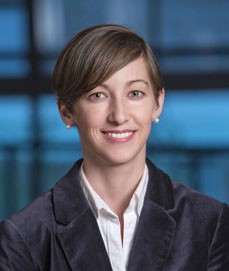
Danielle Bassett, J. Peter Skirkanich Professor in the departments of Bioengineering and Electrical and Systems Engineering, investigates how the shape of networks impact the phenomena that arises from them. Much of that research is focused on networks of neurons, and how the different ways they are wired together in different people can influence their mental traits, such as memory or executive function.
Bassett is also interested in networks of people, however, as the shapes of those networks can have a major impact on a society’s traits. Last year, she and her colleagues published a study that investigated the network of citations neuroscience researchers produced in the course of their work, demonstrating a systemic gender bias that left women underrepresented in the literature.
Recently, Bassett spoke with WIRED’s Grace Huckins about the big-picture changes that must take place within academia for it to become truly equitable.
When a group of researchers at NYU Abu Dhabi published a paper in Nature Communications last fall suggesting that young women scientists should seek out men as mentors, the backlash was swift and vociferous. Countless scientists, many of them women, registered their indignation on Twitter—some even penning open letters and their own preprints in response. The original paper had found that female junior scientists who authored papers with male senior scientists saw their papers cited at higher rates. But a number of critics contested the assertion that this result established a link between male mentors and career performance. Scientists routinely coauthor articles with people who are not their mentors, they argued, and citation rates are just one metric of achievement. In response to these criticisms, the authors eventually retracted their paper. (They declined to comment to WIRED.)
But the paper had already stirred up a broader discussion about gender and mentorship in academia. For Danielle Bassett, a professor of bioengineering at the University of Pennsylvania, the methodological concerns that prompted the paper’s retraction were far from its worst sin. She herself has researched citation practices and found that, in neuroscience, papers with male senior authors are cited at a disproportionately high rate—primarily because other male scientists preferentially cite them. To suggest that young women should therefore try to author papers with men is, she believes, a grave error. “That was a problem in assigning blame,” she says. “The onus is on us to create a scientific culture that lets students choose a mentor that’s right for them.”
Continue reading Grace Huckins’s ‘As More Women Enter Science, It’s Time to Redefine Mentorship‘ at WIRED.
Originally posted in Penn Engineering Today.
